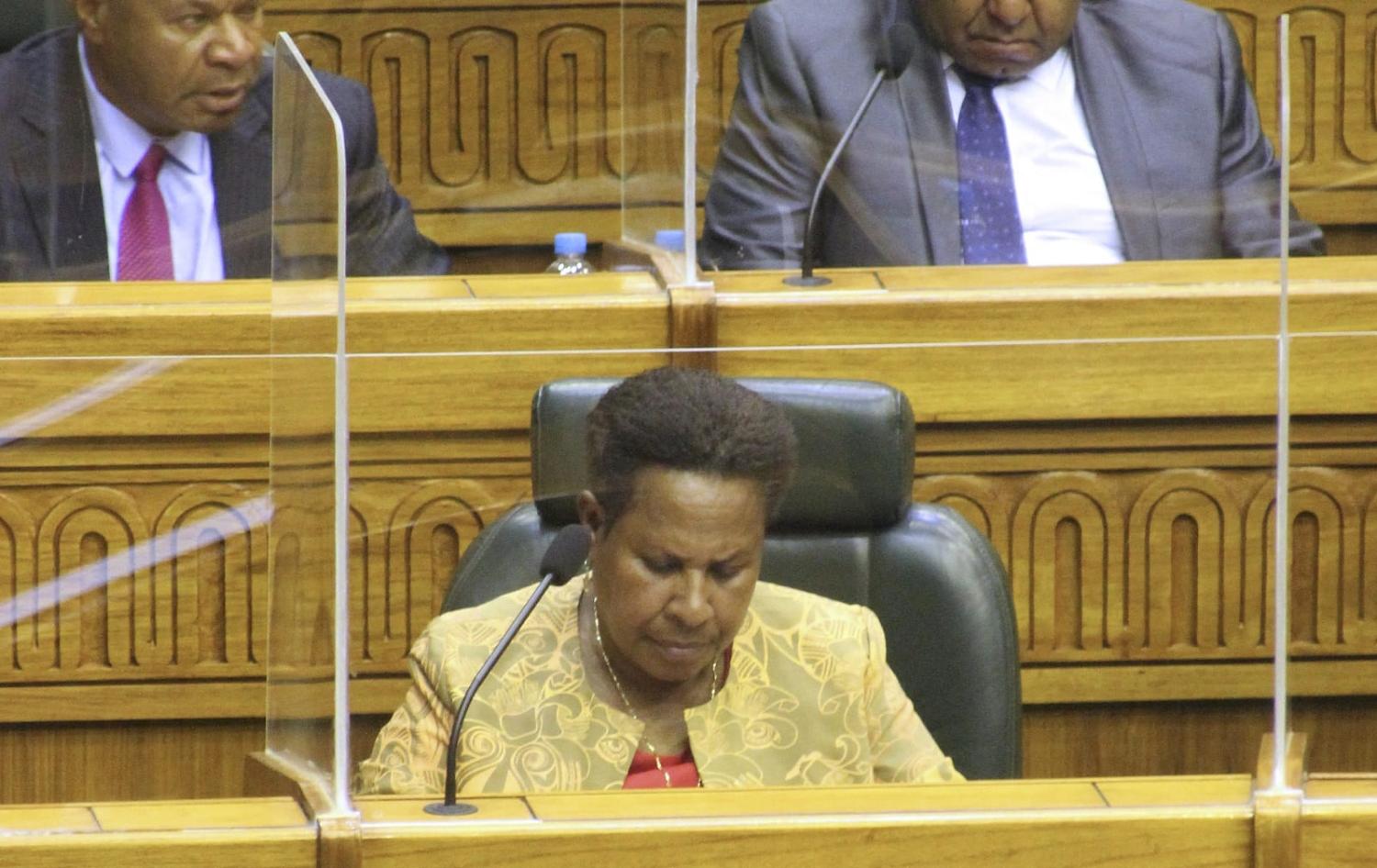It was a long-awaited announcement that drew little attention in Australia. In April, US President Joe Biden named Haiti, Libya, Mozambique, Papua New Guinea (PNG) and Coastal West Africa as its partners under the Global Fragility Act of 2019 (GFA).
The announcement was well over a year behind schedule, but the timing was telling. Just two months into the Ukraine war and while China was making waves in the Pacific Islands region, Biden called it “an inflection point in history” in a world rattled by a global pandemic, climate crises, and autocrats testing the mettle of the rules-based order and US global leadership.
The GFA should get the attention it deserves. It’s a bold foreign policy that will help the United States respond to these global challenges. The Act legislates a new approach for the US government that flips traditional foreign policy on its head: instead of reacting to conflict and instability, the US government aims to prevent conflict by building sustainable peace and addressing drivers of instability in fragile countries.
It’s untested and needs long-term strategy that will yield few results quickly. Such conditions will make it difficult for the Biden administration to point to its good work, but the legislation received bipartisan support, signalling it’s well worth the try.
The GFA requires that a US Strategy to Prevent Conflict and Promote Stability (the Global Fragility Strategy) be implemented in the four identified countries and one region – including PNG, Australia’s closest neighbour. All countries will have individual ten-year plans for stabilisation and peace-building. Each ten-year strategy will act as a blueprint for how to address fragility using all arms of US government (defence, diplomacy and development) and will integrate with all sectors in those countries. The named countries will be the testing ground for the GFA, and if successful, the framework will be applied to all US foreign policy strategies in conflict-prone states.
As I argued in an article for the United States Institute of Peace, the GFA’s success will depend on how well the US government can integrate with locally led programs. Integration is important because engaging locals helps to move foreign aid programs beyond the siloed and fragmented approach that can impede development outcomes. Outcomes will also depend on how well the US programs reflect local contexts and challenges. Copying programs used in other countries is not ideal, although consultants and stakeholders will inevitably bring knowledge and experience from other contexts.
In PNG, homegrown programs and building local competencies and capacity are essential. PNG’s development challenges and the socio-cultural systems they are grounded in are unique and require intimate knowledge and experience from locals. But local non-government organisations struggle to get the levels of funding allotted to international NGOs, which impedes capacity building. Outsiders such as the United States also need to understand how to work with the intricate web of relationships that drive PNG’s social and political networks, well beyond formal institutions.
The ultimate test will be whether the United States can do more than just show up. Engagement in PNG must be relationship-driven and strategic, as Biden said: “We know that working broadly, strategically, and cooperatively to prevent conflict and instability is the greatest investment we can make.”
Despite PNG’s immense development challenges, Australia largely carries the weight of development for its closest neighbour, creating a rare case of donor concentration. While Australia contributes around $500 million annually in Official Development Assistance (ODA) to PNG, the contributions from the United States is strikingly less. Since 2008, Australia has provided between 30 and 77 per cent of all aid to PNG, whereas the United States has provided between .04 and 1.5 per cent. Australian aid as a proportion of PNG’s overall aid has reduced in recent years because multilateral organisations such as the Asian Development Bank have increased contributions. At the same time, China has increased its aid, providing up to 22 per cent of PNG’s total ODA in 2016.
Despite Australia’s ongoing commitment to PNG, development challenges have been hard to conquer. If rankings on the Gender Inequality Index are anything to go by, PNG’s is alarming, at 161 out of 162, with domestic and communal violence remaining a significant impediment to development. The rate of gender-based violence in PNG is twice the global average. Women’s political representation is also alarming – just two women were elected to PNG’s all-men parliament earlier this year after having no female representation for five years.
The United States will likely have a gender focus in PNG, although it will need to ensure that a US worldview does not cloud strategy or implementation. If serious gains are to be made in this sensitive space, all actors must appreciate the complex socio-cultural systems and political economies that continue to act as blueprints for people living in PNG communities. It means the United States must appreciate the PNG worldview. And if Papua New Guinean women are empowered, it must be done safely. Women and men must be on the journey together to avoid the risk of conflict erupting from frustration.
There is certainly a long road ahead for the United States in PNG, as with all the GFA partner countries. As Biden acknowledged in his statement, hard work will be needed, which will be “measured not in days and weeks, but in years and generations.” It’ll be hard work tackling complex development challenges, but even harder to work successfully in a currently fragmented development space, stymied by a lack of coordination and collaboration and a small bureaucracy with capacity issues.
It will be a great investment, if implemented well. Given their recent signing of the Partners in the Blue Pacific initiative, the United States will be called upon to prove its commitment to collaboration with development partners. In this process, Papua New Guineans, with their local knowledge, complex webs of relationships, and profound understanding of what is impeding the development of their own country, must be central. That may include the United States relinquishing total control.


